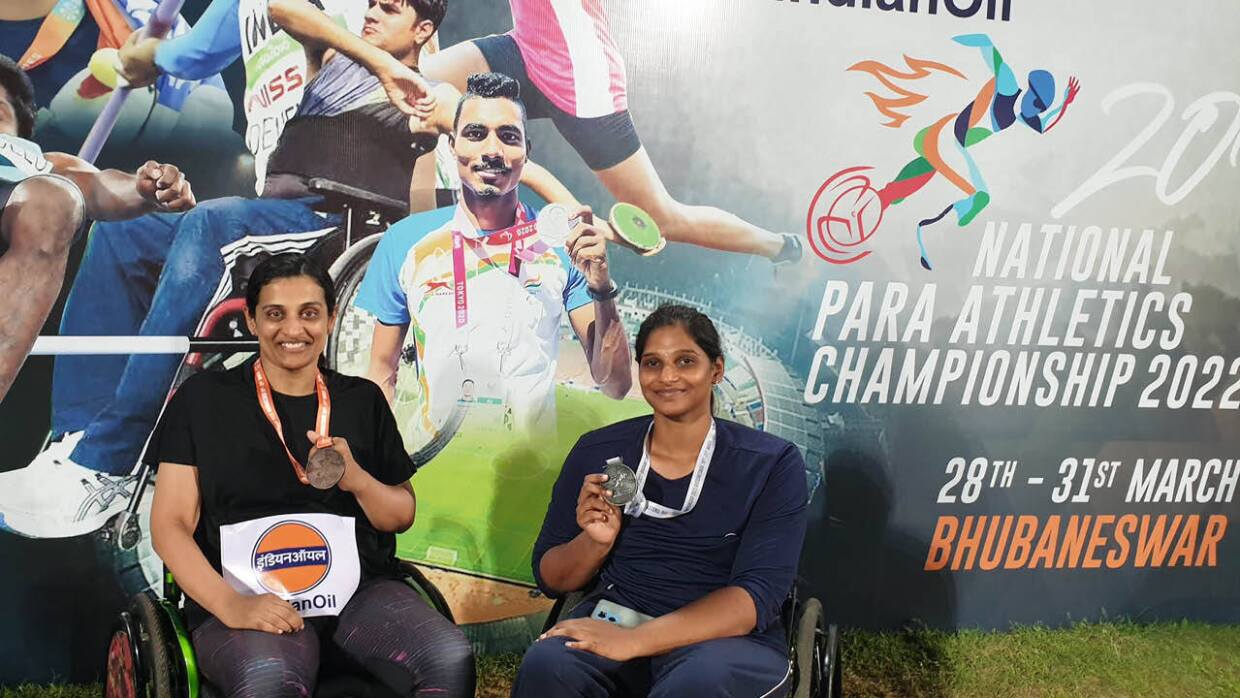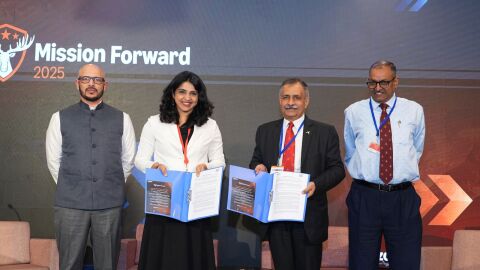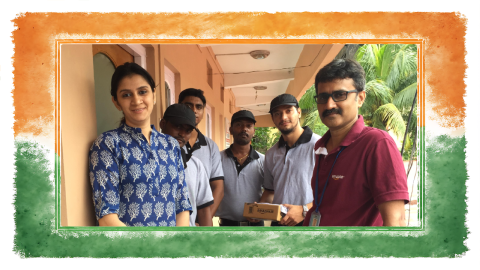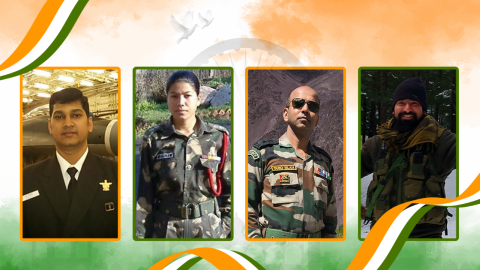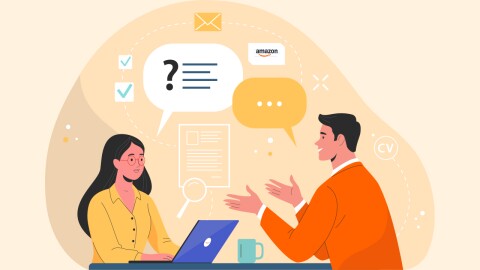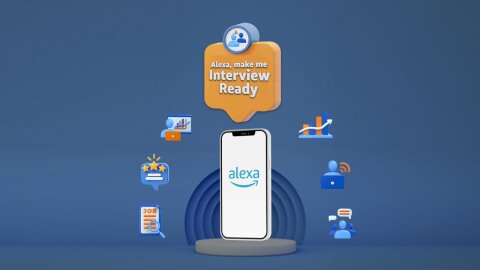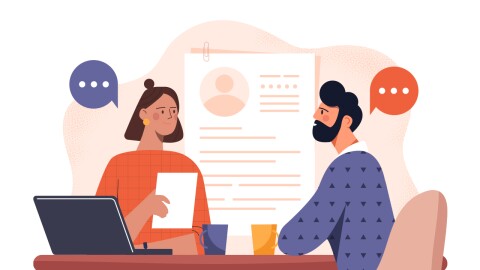The 20th National Para Athletics Championships, held in Bhubaneswar in March 2022, saw two Amazonians, Keerthika Jayachandran, Customer Service Associate, and Mrunmaiy Abroal, PR Head for Amazon Echo and Alexa, come home victorious with medal-position wins! Keerthika won a Silver in the Discuss Throw – F53 category, and Mrunmaiy won a Bronze in the Club Throw – F51 category, and we couldn’t be prouder.
Hearing of their wins, and given this is Global Accessibility Awareness Month, we simply had to grab the opportunity to hear and learn from their journeys, how they balance work with their commitment to sport, their mantras for rising above seemingly impossible obstacles, and more.
Several years back, Keerthika and Mrunmaiy met with accidents that resulted in paraplegia (paralysis in the legs and lower body) and quadriplegia (paralysis of all four limbs), respectively. Since the injuries that changed their lives forever, they have moved on in life with their grit, perseverance, sense of adventure, positivity and strength. Here’s a snapshot of our recent conversation with them –
Congrats, Mrunmaiy and Keerthika, on your superb wins. Tell us about how did you end up becoming para athletes!
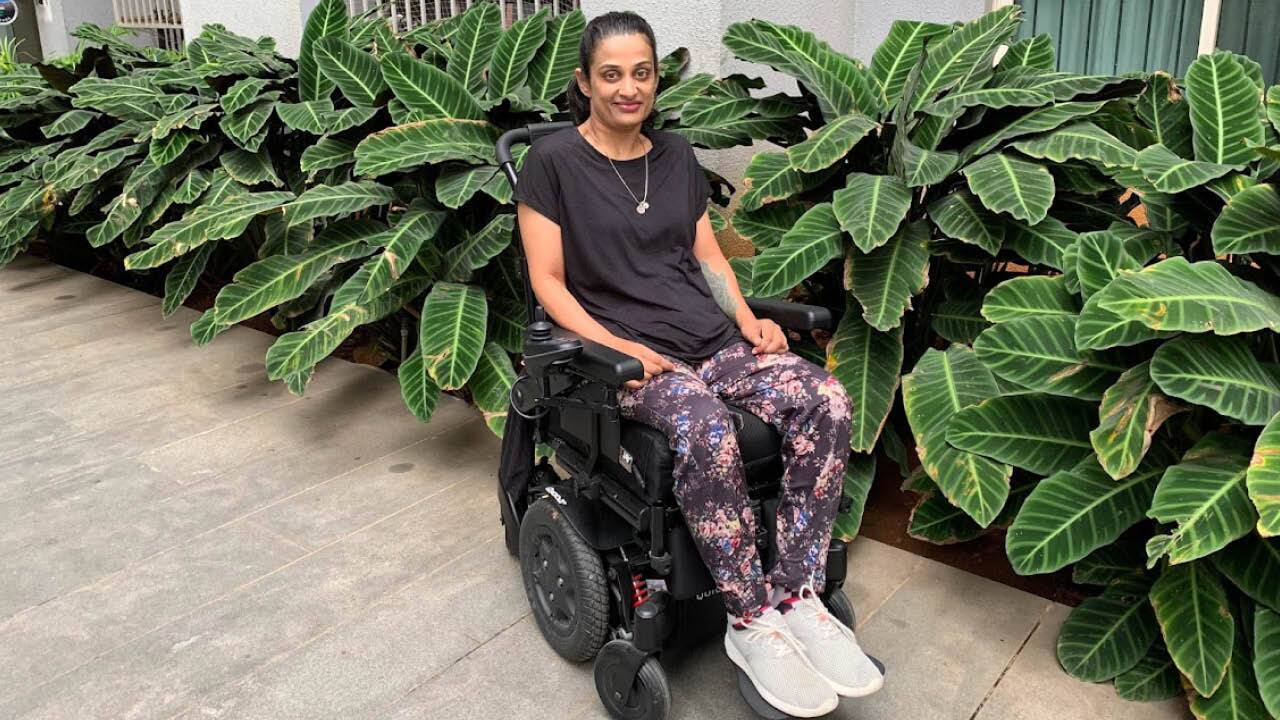
Mrunmaiy: When the pandemic started, I really wanted to get fit. While I had managed to control my weight through changes in diet, I’d heard about the use of sports in rehab to help gain strength and better control of the body. I also had more time on my hands during the pandemic like a lot of us did. So I did a fair bit of research on parasports, read a lot, spoke to a lot of athletes in the space, and learned about Club Throw. I realized this was an underexposed sport and I had the opportunity to help others learn. Even though I’d never thought of sports before my disability, I now had the chance to make a mark in this space. I bombed my first attempt in 2021 Nationals, the club kept slipping from my hand. However, I continued practicing and improved my performance this year. I love setting bigger and more exciting goals for myself, and I’d love to one day represent India internationally too!
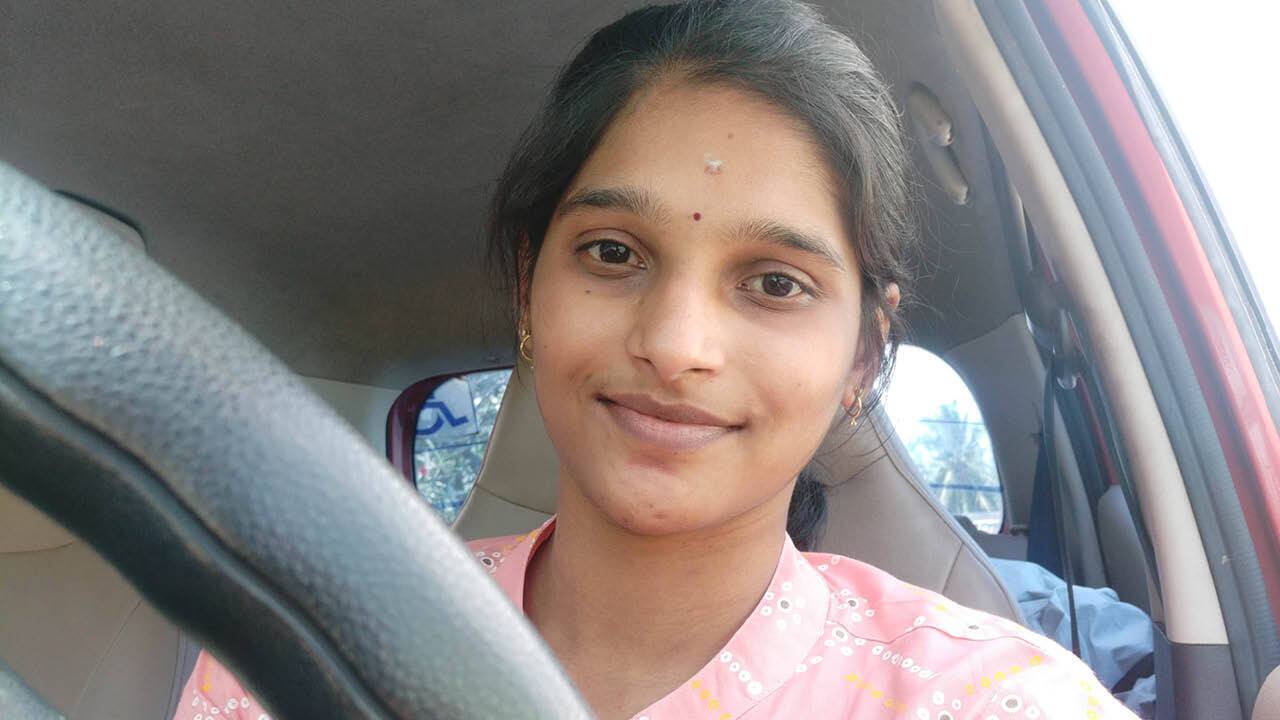
Keerthika: After my injury, I did not step out of home for nearly 14 years. Then one day a foundation called me for an awareness camp. I learned about wheelchair basketball and started playing. That was the starting point of me bouncing back with the help of sports. A little while later, due to health issues I couldn’t continue with wheelchair basketball because it took anywhere from 40 minutes to an hour of continuous sitting and playing actively. At that time, I couldn’t sustain that kind of activity for that long. So, I began looking for alternatives that would require shorter investments of energy. I learned about para athletics - it is an individual sport, and takes 20 to 30 minutes at a time, and chose to take it up. That’s how I became a para athlete.
Prepping for the championship must have taken a good amount of time and energy. How did you juggle work and training?
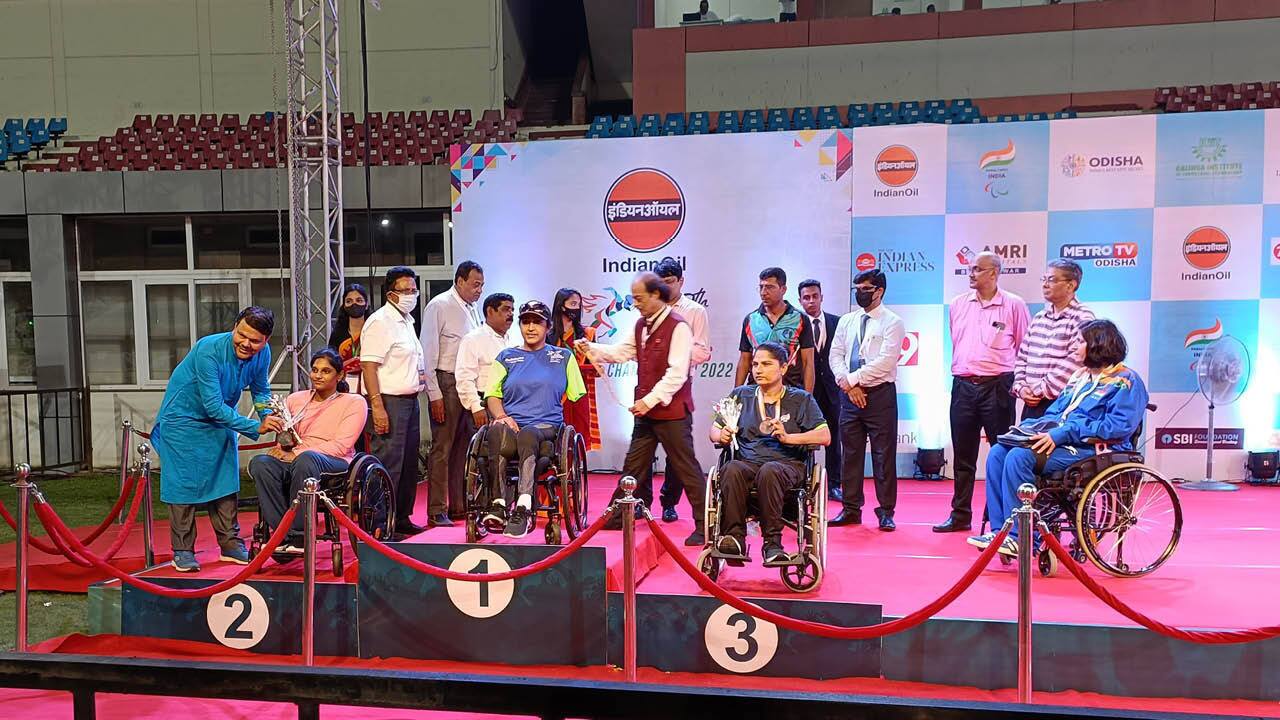
Mrunmaiy: In my area of work, I can be flexible with my work hours. Hence, I am able to move things around when I need to, and my leaders and peers have been very supportive, for which I am grateful. On a typical day when I need to train, I wake up at 5:00 am so that I’m ready by 7:00 am (it takes me two hours to get ready). Then I train till about 10:00, and by 11:00 I am ready to log in. So, my days are not the typical 9-to-5. I also have physiotherapy on two days of the week, and one of them is a Wednesday. Half my Wednesdays are taken up by physio, and my colleagues make sure my calendar is free during that time.
I strongly believe that if we really want to do something, we have to make time for it.
I strongly believe that if we really want to do something, we have to make time for it. And it won’t feel like a sacrifice if we really enjoy doing it! It also helps that sport has made me so much stronger, which is a huge motivator for me. Earlier, brushing would take me 20 minutes. I hold the brush between my wrists, and would take a break after I’m done with one side of my mouth. Now, with all the exercise, I’m done in 5 minutes in total! These small improvements due to exercise and sports have made a huge difference in my daily life.
Keerthika: I have also had tremendous support from my manager and teammates to do the things that are important to me. In CS, there’s a shift rotation every three months, and because I train in the morning, I have always got the 3 pm to 12 am shift on request. I swap my shift with a colleague and my teammates are always helpful. My Team Manager has also always been accommodating with my leaves because he trusts me. I sincerely thank him!
It’s been a journey, and I’ve got better with time.
Even with all the help, to be honest, managing work and sport training has not been easy for me. For example, when I need to do heavy workouts, I get tired by the time my shift starts, but of course I need to push through and deliver. I’m used to it now, thankfully. It’s been a journey, and I’ve got better with time.
Tell us a bit about how you got your disability.
Mrunmaiy: I met with the accident in 2011 while traveling from Nagpur, my hometown, to Mumbai. A truck rammed into the car I was in. I have no recollection of the day of the accident. I only remember waking up in a hospital with the ability to move my eyes. I had a surgery in my neck and moving my head was very painful. I had fractured my C5 vertebra of the spinal cord, which meant I had lost all movement and feeling below the shoulders. Doctors in the hospital said there wasn’t anything more to be done, that I would be bed-ridden the rest of my life. I couldn’t accept it, and was convinced there were others like me who weren’t permanently bed-ridden. So I looked for help and came across the Indian Spinal Injuries Center, which really was a blessing. I went there in the third month after my accident, and learned how to control and strengthen the parts of my body I could move. For example, even sitting was a challenge. So, I learned how to sit, balance my body, and so on.
That’s what a spinal cord injury (SCI) is – below the level of injury one’s brain cannot send signals to any part of the body. It could be muscles, bones, or even organs. I cannot control my bowel or bladder, or feel temperature changes below my shoulders. SCI comes with its own set of challenges – like not knowing whether I’m injured/cut anywhere, whether there are any pressure sores, and so on.
Keerthika: In 2004, I was cycling on a flyover and forgot to jam the brakes when I was supposed to. I fell over and injured my spinal cord at the C7 level. I lost all sensation below my chest. For the first two years, I was completely dependent on my parents, who graciously took care of me. Even going to the bathroom took two hours. Back then, rehabilitation for SCI was nearly non-existent. Hospitals were at a loss about my treatment. I decided that I would do whatever it took to try and be as independent as possible. Couple of years in, I started rehab and things gradually starting looking up. I got into sports only four years back, 14 years after my injury, and I’ve improved in leaps and bounds since then.
How did you find the strength to rise again post your injury?
Mrunmaiy: I think I have an inherent attitude of ‘what’s next?’ When I learned in Delhi that my disability was permanent, that there was no cure, I thought, “Okay, so now what can I do?”
I sought professional help from rehab experts and psychologists early on, and continue to see therapists even now when I need to. I also reached out to other people with SCI because only they would be able to empathize – not even close friends and family could. I continue to stay connected with other quadriplegics and paraplegics.
A big hurdle to cross was self-acceptance. I needed be okay with the new version of me, and had to stop comparing myself to the old me. Like, “I used to be able to get out of the house or even turn in bed by myself, but I can’t anymore.” Even at work I would constantly doubt myself – “Am I doing enough?” I did really lose my confidence. Something important my counselor once said to me was – 'If you don’t believe in yourself, no one else will.'
I put this up in bold letters on my desk and kept going back to it whenever self-doubt crept in, saying to myself, “Look how far you’ve come. You’ve got this.” It took time, and there’s still a way to go, but I’m grateful for all the small improvements and successes.
Keerthika: For me, my biggest pillars of strength were my mom, dad and my elder brother. They constantly encouraged me and supported me in every way possible. I’m deeply grateful to them because without them I wouldn’t be where I am today.
More about Mrunmaiy and Keerthika
Mrunmaiy is a communications professional with more than 17 years of experience. At Amazon India, she heads public relations for Alexa and Echo range of devices. She blogs at https://mrunmaiy.com/ about living with a spinal cord injury, the joys & challenges of traveling with a disability, and her life experiences. At Amazon, she is also the President of the PWD affinity group for employees in India.
Keerthika has been a Customer Support Associate with Amazon since 2018. In her spare time, Keerthika loves to read books, listen to music, travel, and drive her specially adapted car. Read more about her journey here.



